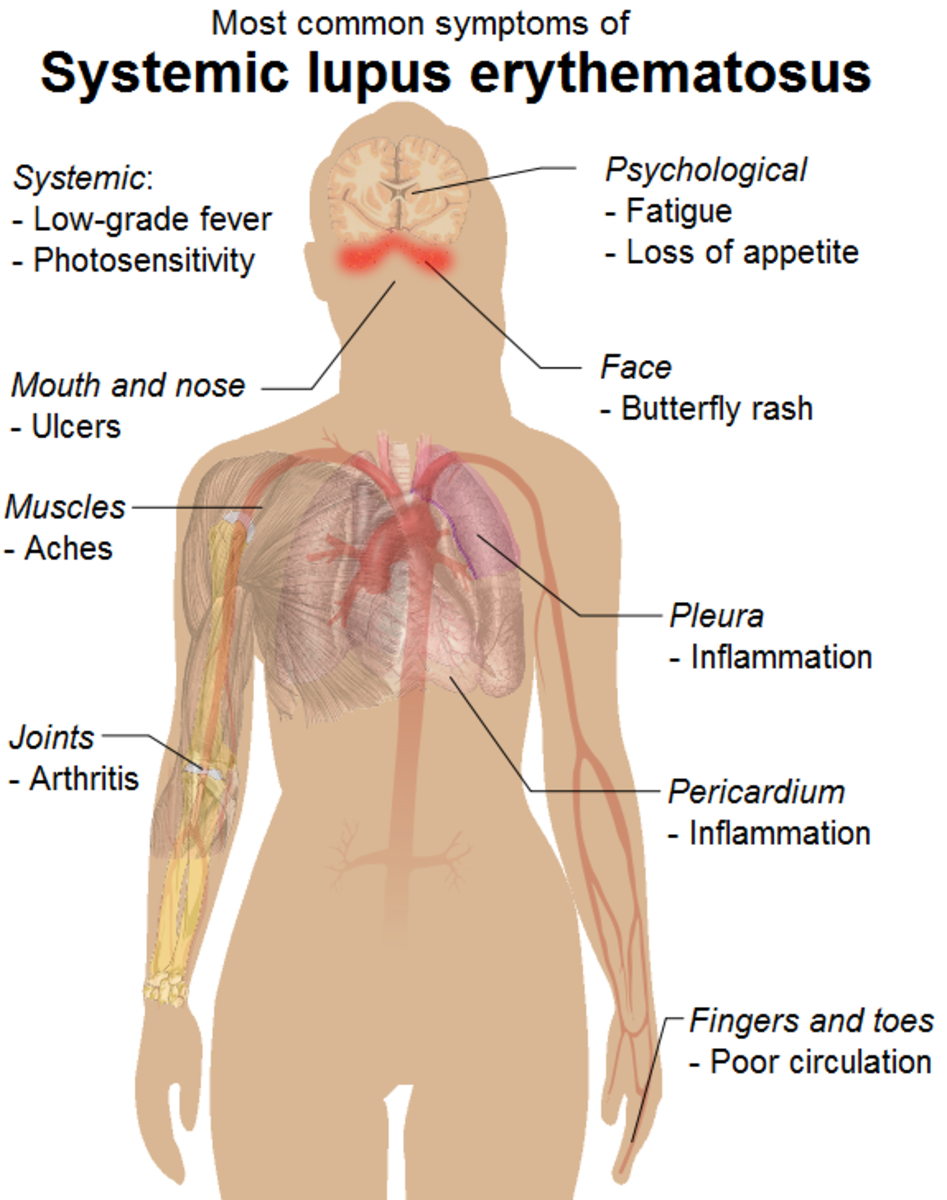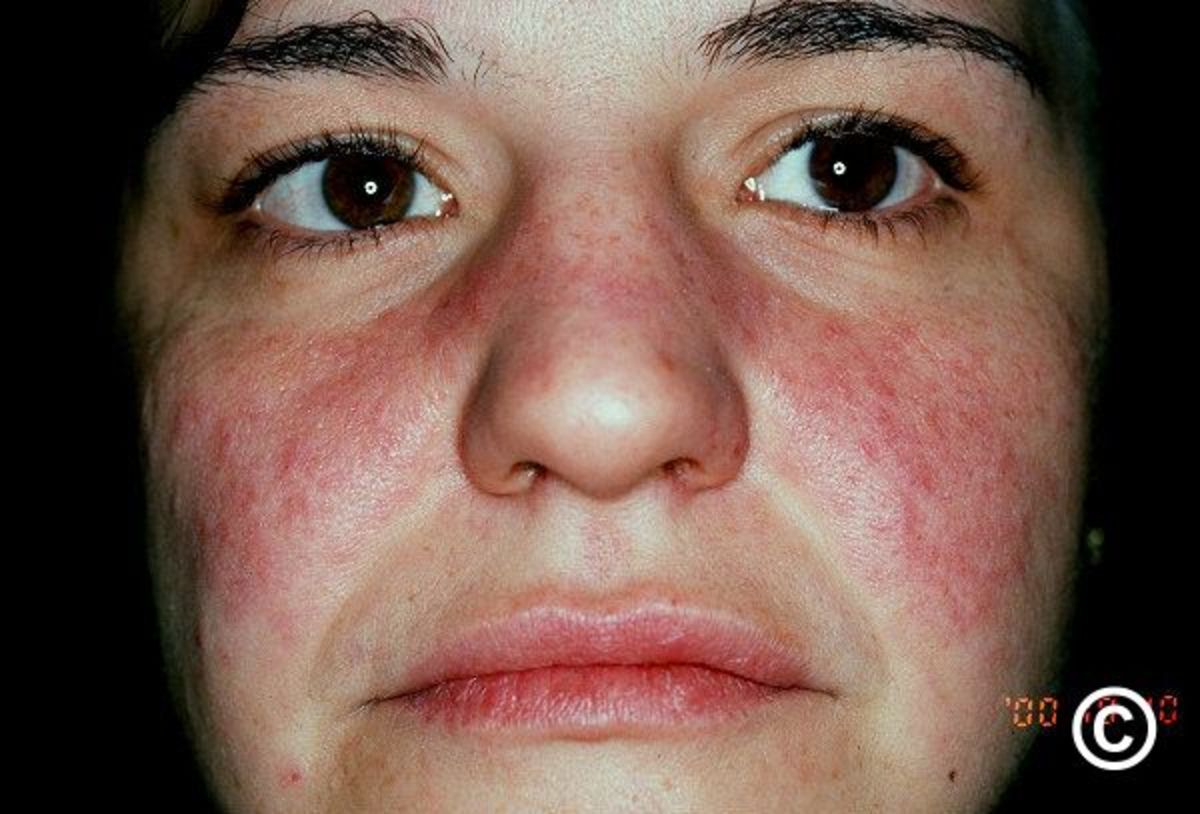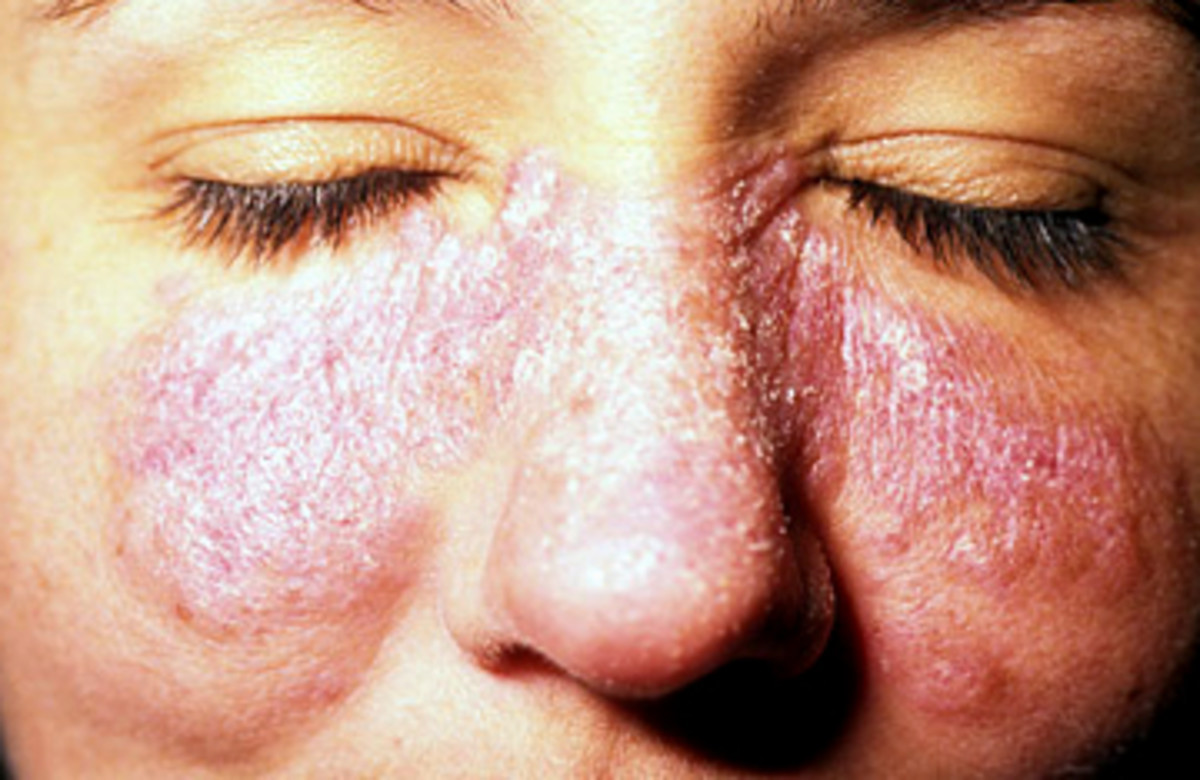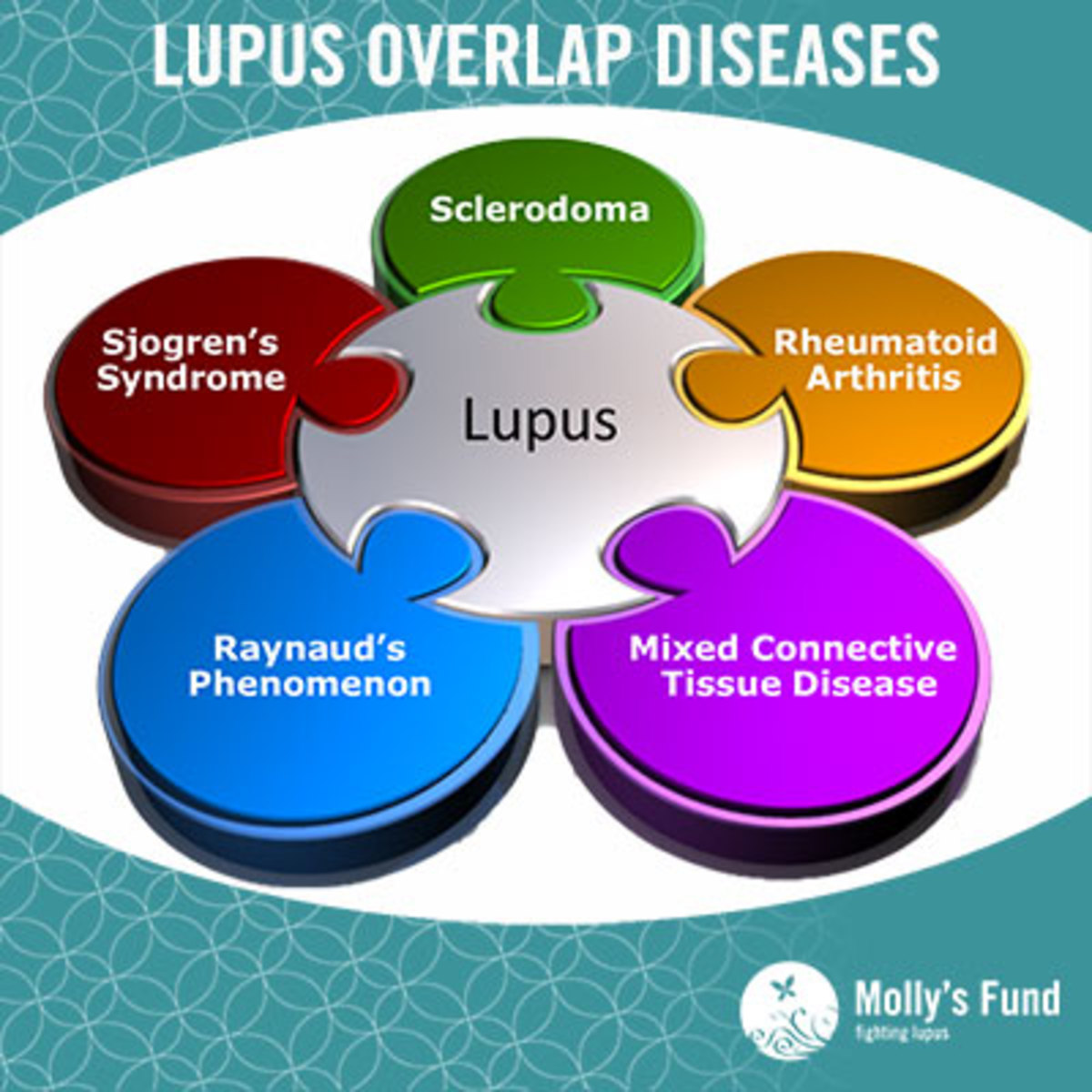What Is Lupus?
Lupus Wristbands

Do you know what Lupus is?
An Introduction to Lupus
What is Lupus? This disease is very complex and presents with a variety of symptoms that can affect the entire body: it is an auto-immune disease.
What does auto-immune mean? Auto-immune diseases cause the body's defense system (the immune system) to start attacking healthy tissue rather than the invading infections and bacteria. It is thought that due to an excess of antibodies in the blood stream causes inflammation and damage in the joints, muscles and other organs.
Different Types of Lupus:
There are three main forms of Lupus:
- Discoid Lupus Erythematosus (DLE)
- Drug-induced Lupus
- Systemic Lupus Erythematosus (SLE)
Who is Affected?
Lupus is an uncommon condition, however, it has been noted that 90% of reported cases occur in women, normally between the ages of 15-50.
Lupus also has different affects among different ethnic groups (UK results):
- 1 in 5,000 white women will develop SLE
- 1 in 1,000 women of Chinese origin will develop SLE
- 1 in 625 African Caribbean women will develop SLE
As you can see certain ethnic groups are more susceptible to developing Lupus which is why it is so important to find a cure so that these statistics will improve.
Discoid Lupus Erythematosus
Discoid Lupus Erythematosus (DLE) is a form of Lupus that only affects the skin, of which only a very small amount of patients go on to develop Systemic Lupus.
D. L. E symptoms include:
- Hair Loss
- Permanent bald patches
- Red, circular or scaly marks on the skin (not to be confused with Psoriasis)
Treatment for D. L. E
This form of Lupus is normally controlled using medication and by avoiding sunlight. Avoiding sunlight can be managed by keeping covered, using sun-cream, staying in the shade as much as possible and avoid being outside at mid-day during the summer months.
Medication treatments will be discussed and monitored with your health care provider and you may find that you go through multiple types and combinations of medication before you find the correct dosage for yourself.
Drug-Induced Lupus
There are certain medications (currently over 100 are already known) that will cause Lupus-like symptoms. However, by stopping treatment and using an alternative will normally reverse the Lupus-like symptoms.
Systemic Lupus Erythermatosus
Systemic Lupus Erythermatosus (S. L. E) is the type of Lupus that attacks the body's tissues and organs. If it is not controlled properly of if it progresses to a severe state then it can cause permanent organ damage. However, if it is mild-moderate then the symptoms can be controlled and the patient can lead a normal life and time span without many issues or complications.
This is the type of Lupus that my doctors were concerned about which is why I went through extensive testing to rule this out. Since S. L. E can be so harmful many health care providers will want to rule this out before investigating any other possible causes.

Lupus Symptoms
Unfortunately Lupus is not one of these easily categorical diseases. It presents with many symptoms and it is rare for two people to have exactly the same symptoms, and these can vary from one to many.
It is also common for symptoms to wax and wane, developing and receding over time. This is why a diagnosis is often so difficult as the symptoms are rarely set in stone. You may present with fatigue and headaches but in the next month present with flu-like symptoms and depression before going back to the headaches again.
It has been documented that the two main symptoms of Lupus are:
- JOINT/MUSCLE ACHES AND PAIN
- EXTREME TIREDNESS AND WEAKNESS
However, there are multiple symptoms that may accompany those, or may even present by themselves. These include
- Joint/muscle aches and pains
- Permanent rash over cheeks
- Extreme fatigue and weakness
- Increased risk of miscarriage
- Rashes from sunlight/UV light
- Flu-like symptoms and/or night sweats
- Weight gain or loss
- Inflammation of the tissues covering internal organs with associated chest and/or abdominal pain
- Seizures, mental illness or other cerebral problems
- Headaches, migraine
- Kidney problems
- Oral/nasal ulcers
- Hair loss
- Depression
- Haematological disorders including anaemia
- Swollen glands
- Poor blood circulation causing the tips of fingers and toes to turn white then blue on exposure to cold (Raynauds)
- Scarring
Lupus Awareness Video
Triggers of a Lupus Flare
Since Lupus is one of those tricky auto-immune disorders there is no one cause or trigger for developing the disease. Researchers have noted that the following events have been shown to cause Lupus outbreaks in patients that already have a susceptibility to Lupus (including family history of Lupus, M.S, arthritis, rheumatism and other auto-immune disorders).
Of the research that has been conducted the following life events and sicknesses have been know to start the progression of Lupus. These will not always be the same for every person because each immune system is unique but these examples can help you to narrow down your trigger points:
- at puberty
- during the menopause
- after childbirth
- after viral infection
- through sunlight
- as a result of trauma
- after a prolonged course of some medications
These events can cause worsening symptoms that the patient is already suffering from or cause new ones to develop. A serious risk with flares is that some permanent damage to organs may occur leaving the patient at risk for other diseases as their body becomes more compromised.
Some people have also questioned if they can catch Lupus. I'll say it again: LUPUS IS NEITHER CONTAGIOUS NOR INFECTIOUS so you should not hold any prejudice against someone with this disease, the myths needs to end.

Treatments for Lupus
Unfortunately there is currently no cure for the disease. The best course of action is to treat the symptoms so that the patient can lead a healthy life they are happy with. You may have seen in the video that the girl goes back to playing competitive basketball and fulfilling her dream as a result of working together with her doctor and finding a good combination of medication.
There are a whole range of medications that are available over the counter as well on prescription and the most common treatments for Lupus include:
- NSAIDS: non-steroidal anti-inflammatory drugs, such as aspirin and ibuprofen. This is used mainly for joint/muscle pain but drugs such as aspirin, heparin or warfarin can be used to thin the blood (anticoagulation treatment) if they have clotting issues.
- Anti-Malarials: these provide assistance with fatigue, skin and joint problems.
- Steroids: used to reduce inflammation and suppress active disease.
- Immunosuppressants: used when the disease is severe it is useful when the patient presents with kidney disease and steroid dosage needs to be dropped.
- Intravenous Immunoglobulin: an uncommon treatment used when the platelet count is low and there is a risk of bleeding.
- Cyclosporin A: a drug widely used in transplant cases to suppress rejection. This is useful in preventing the body attacking itself.
- Thalidomide: for severe skin disorders this treatment has shown powerful positive results but is an uncommon treatment.
*OF COURSE ALWAYS CONSULT YOUR PRIMARY HEALTH CARE PROVIDER WHEN CONSIDERING NEW MEDICAL OPTIONS AS THIS IS MERELY INFORMATION NOT MEDICAL ADVICE OR TREATMENT*
Help Me Fight Lupus
More Lupus Resources, Stories, and Tips.
- LUPUS UK - The National Charity for People Affected by Lupus
LUPUS UK is the national registered charity supporting people with lupus, assisting those approaching a diagnosis and funding research and specialist nurses - Living With Factor V Leiden: Living with Lupus
This is the story of Halee, a young women who is dealing with Lupus. - Living With Factor V Leiden: Lupus Foundation for America: A Helping Hand
An introduction to the Lupus Foundation and the great work that they do.
© 2012 Bobby








